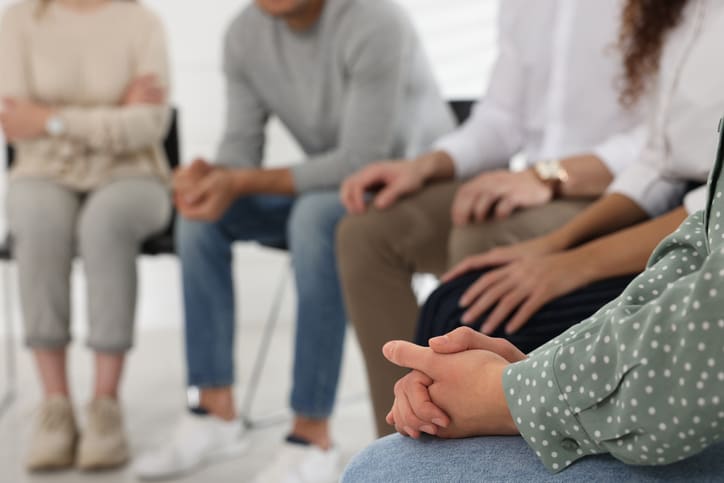For a person in recovery from a drug or alcohol addiction, relapsing can be devastating. But the fact is, for many individuals, relapse is part of their recovery process. According to the National Institute on Drug Abuse, approximately 40 to 60 percent of people in addiction recovery relapse. Statistics show relapse rates are different for each substance, with relapse rates for opioids being the highest at approximately 91 percent. Many people go through one or more relapses and treatment cycles before attaining lasting sobriety.
Addiction and Relapse
Addiction is a chronic, treatable disease that makes changes to the brain. It is not a moral failing or a choice. People with drug or alcohol addiction compulsively use substances and continue despite negative consequences. Addiction, like other chronic diseases such as heart disease, asthma, or diabetes, can be successfully managed with treatment. A relapse does not mean failure – it can occur at any time in the recovery process and is a sign that the treatment plan needs to be revised.
What are the Causes of Relapse?
Exposure to stress, emotions, places, people, or things that cause a person to have memories of using drugs or alcohol can trigger a relapse. Relapse triggers cause the person to have intense cravings for their substance of choice or make them think they cannot cope without it. It is critical for people recovering from substance use disorders to be aware of their personal triggers and learn how to cope with them in healthy ways. Below are seven of the many reasons people relapse.
- Withdrawal and Post-Acute Withdrawal
Some people relapse during the first week of recovery to avoid having withdrawal symptoms.
Others relapse in early recovery when they undergo post-acute withdrawal syndrome (PAWS). Post-acute withdrawal begins after the acute withdrawal phase ends. This phase can last for six to 18 months. The symptoms of acute withdrawal are typically physical. The symptoms of PAWS are typically psychological and emotional and generally overlap with depression.
- Mental Health Issues
Many people relapse to cope with difficult emotions or thoughts caused by mental health issues, such as depression, anxiety, personality disorders, mania, or post-traumatic stress disorder. Mental health disorders often co-occur with drug and alcohol addiction. For a successful, lasting recovery, both co-occurring disorders must be treated.
- People
People with active addiction often like to be around others who also enjoy using drugs or drinking alcohol. When a person is in addiction recovery, especially early recovery, being around the same people can trigger a relapse. It takes time and effort to be able to reach a point where you can enjoy going to social gatherings where there is alcohol being served.
- Places
Many places can trigger a relapse for someone in recovery, such as bars, clubs, wineries, casinos, liquor stores, and parties. Specific places depend on the individual. Places a person associates with actively drinking or using drugs can trigger a relapse.
- Things
An addiction so deeply impacts the brain that even tiny things that barely register in the mind can trigger a relapse. For example, the sounds of cans opening, bottles popping, or glasses clinking may trigger thoughts about drinking. Someone in recovery from cocaine addiction may be triggered by seeing a straw, credit card, syringe, or pill bottle. Relapse triggers can be anything the person associated with using drugs or drinking alcohol.
Since it is almost impossible to avoid many of these things, people in recovery need to stay mindful of their situations and actions. With mindfulness and awareness, you can observe the cravings arise, understand the feelings behind them, determine the trigger, and cope with the situation without drugs or alcohol.
- Poor Self-Care
Practicing good self-care is a critical part of recovery. When you take good care of yourself, you’re telling yourself that your well-being matters. Poor self-care can trigger a relapse. For example, eating an unhealthy diet low in nutrients and high in sugar can result in a depressed mood and may cause alcohol or drug cravings. Practicing good self-care includes eating a balanced healthy diet, getting enough sleep, exercising, practicing good hygiene, and engaging in behaviors that support addiction recovery and mental wellness.
- Complacency, Overconfidence, and Boredom
Sometimes relapse occurs when a person is complacent or overconfident. They may start to think they can handle moderate drinking or drug use. Other times, boredom and isolation can be the cause of relapse. Going to support groups such as 12-Step meetings, cooking healthy meals with loved ones, exercising, or taking up a new hobby or activity are great ways to fill the voids during the day.
Help is Available
Achieving lasting sobriety is not easy. It takes daily commitment, dedication, patience, and hard work. If you or someone you love has relapsed or is struggling with an addiction to drugs or alcohol, now is the time to get the help you need. At Anabranch Recovery Center in Terre Haute, Indiana, our caring professionals will help you travel the path to recovery.




